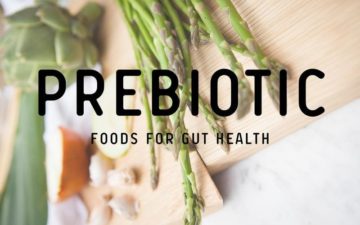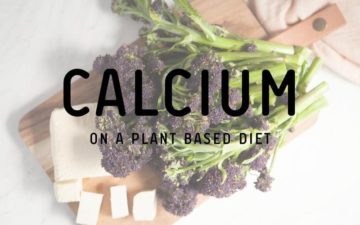When genetic profiling intersects with nutrigenomics – the science of how our genes are influenced by our dietary, exercise and lifestyle choices, we are able to take those insights and craft a highly personalised health and wellbeing plan, to maximise our health potential and promote both physical and mental wellbeing.
Read on to learn more about this exciting new field and what I have personally learnt from my own profile.

In the year I was born, 1982, life expectancy at birth (as an average for the total New Zealand population) was 73 years. Fast forward a few years to 2015, and you’ll see that has risen to 81 years. An extra 8 years of life sounds like a rather sweet deal doesn’t it?
Well, almost. Until you consider this. Prevalence of chronic disease such as obesity, arthritis, chronic pain and diabetes has been steadily on the rise in this time.
Curious. Life expectancy rises, health expectancy falls. We’re living longer, sicker. And if this is the case, which it is, then what can we do about it? Do genes have a role to play? Most certainly.
If you, like me, would like to live longer younger, then I’d love to introduce you to genetic profiling and the world of nutrigenomics.
[bctt tweet="DNA testing for health and wellbeing: what my genetic profile told me. Read more here! " username="laurenglucina"]
What is genetic profiling?
Genetic profiling is the analysis of an individual’s genes (inherited from your mum and dad). And genes are sequences of DNA, that contain biological instructions for making proteins, the building blocks of the body.
The DNA within genes determine an individual’s unique characteristics. Because of this, it is therefore possible to predict susceptibility to disease by studying the genome.
What is nutrigenomics?
Things get really interesting when we introduce nutrigenomics. Nutrigenomics is the scientific study of how your diet and lifestyle choices may interact with specific genes, to either increase or decrease your risk of chronic disease (such as obesity, type 2 diabetes, Alzheimer’s disease, heart disease, high blood pressure, lung disease and cancer); affect your physical performance; and influence your mental wellbeing.
This means, through genetic profiling you will be able to find answers to questions such as;
- What are my chances of developing heart disease?
- Do I have genes that predispose me to weight gain?
- Why was my friend able to lose weight and feel great on a high fat low carb diet yet I felt utterly drained?
- Am I genetically prone to inflammation?
- Is caffeine good for me?
- What effects if any do my genes have on my mental health?
- What is my genetic detoxification capacity?
- Are high intensity work outs good for me or not?
- Am I a born athlete?
- Will fasting work for me?
But most importantly, nutrigenomics will give you answers to questions such as;
- How can I reduce my risk of developing heart disease?
- How can I compensate for the genetic variants I have that predispose me to weight gain?
- How can I down-regulate genes that promote inflammation?
Do you see the difference? Genetics is the what, nutrigenomics is the how. It provides us with evidence-based dietary, lifestyle or exercise interventions to help change the expression of your genes.
Yes, that’s right – your genes are not your destiny. Even though you have the same set of genes throughout your entire lifetime, you do have the potential to speed up or slow down the enzymes they code for, or compensate for their effects, simply by making the right dietary and lifestyle choices.
You can literally dial them up or down when you’re armed with the right information.
Can you see the potential here now?

Why FitGenes
As you can now imagine, the world of genetic profiling and nutrigenomics has recently gained exceptional momentum, due to the potential it gives to live a longer and healthier life.
Of the many companies offering this service, I chose to train with Australian-based FitGenes for a number of reasons.
Firstly, the FitGenes programme only focuses on genes that affect the physiological functioning of our body at the cellular level.
This is because the quality of a person’s whole-body health is directly determined by the health of their trillions of individual cells.
Their comprehensive reports identify any potential genetic variations that may influence how your body functions, and how you respond to what you eat and drink, how you exercise, and how you live your life.
Furthermore, they provide a large body of research (for example via peer reviewed, double-blind, randomised, placebo-controlled trials) in support of specific interventions to help change the expression of less beneficial genes.
I should also add that the company has no affiliation with supplements whatsoever, so there are no vested interests in the interventions they present.
For these reasons, I believe it really is one of the best DNA tests for health and wellbeing we have available to us.
How is genetic testing done?
The test itself is simple and non-invasive - a swab taken from the inside of the cheek is all that is needed, making it accessible to virtually anyone.
Once your sample has been tested, a report is prepared and ready for me to dive in, interpret and prepare a comprehensive wellness plan.
Because genetic profiling is looking at your susceptibilities (not current manifestations), there may be a need to do some further investigations, such as blood tests, depending on what is currently presenting for you.
But if you are in good health and simply want to do this to arm yourself with knowledge on how to best optimise your health at the cellular level, then the report itself is more than enough.

My genes revealed
Firstly, there are no ‘good’ or ‘bad’ genes, and we all have inherent genetic strengths and weaknesses. How they manifest is up to how we live our lives.
My genetic strengths include;
- The ability to quell inflammatory cytokines, even though I am somewhat prone to inflammation
- Strong cellular defence due to a high capacity to produce antioxidant enzymes
- A great genetic capacity to vasodilate, deliver oxygen and nutrients to every cell, and efficiently remove waste products
My genetic weakness include;
- A slightly slower phase 2 liver detox, which can potentially lead to a build-up of highly reactive oxygen species
- A decreased ability for vitamin D to exert its myriad of beneficial effects
- A decreased ability to clear stress hormones once they are produced, making me a born ‘worrier’ or ‘stress head’
- A decreased ability to utilise vitamin B12, of extra importance to assess and address due to my plant-based diet
- An increased risk of being overweight and obese
- An increased risk of having low HDL cholesterol
Of course, these are just my susceptibilities – they won’t necessarily express in this way as long as I continue to follow a good diet and lifestyle. For example, despite my genetic tendencies, I am not overweight, and my blood lipids are perfect.
On the other hand however, I have been chronically low in vitamin B12 in the past, I have an inflammatory auto-immune condition, and am most certainly a ‘worrier!’.
If I were to zoom in on a few key genetic variants, I am able to find out some very interesting information. Let’s take a look at just a couple below.
Liver detox
In my liver detox profile, my variant of the GSTP1 gene indicates I have a strong sensitivity to chemicals, including herbicides, pesticides and heavy metals.
Additionally, with this gene variant, the enzyme that joins with estrogen metabolites to render them safe and ready for excretion may be working a lot less efficiently than it should.
This hypersensitivity can manifest for me as headaches, fatigue, brain fog and digestive distress. However, armed with this information, I am able to support my total detoxification process simply by low-toxing my life.
I opt for natural cleaning and personal care products, avoid plastic, smoke and excess alcohol, and choose organic where budget allows.
Dietary wise, I’ve learnt that daily intake of vegetables from the cruciferous family (broccoli, cauliflower, Brussel’s sprouts) and allium family (garlic, onions and leeks) is a must.
Since making these changes, I have noticed less headaches, more clarity and energy, and clearer skin.
Vitamin D receptors
Vitamin D is synthesised in the skin on exposure to sun. But it needs to interact with receptors on the outside of your cells in order to exert its effects – which include modulation of the immune and inflammatory processes in the body.
Given I have a polymorphism that desensitises these receptors somewhat, I am more prone to immune dysregulation, and consequently susceptible to inflammation.
This information is valuable – because thanks to nutrigenomic findings, I know exactly which natural supplement I need to help dial up those receptors and optimise my health - potentially helping prevent those inflammatory flare ups.
Stress hormones and mental health
In the methylation and homocysteine profile, the COMT gene is responsible for clearing your stress, sex and feel good hormones from your system once produced.
My variant shows the enzyme this gene codes for is underactive. This means once those stress hormones are produced, they linger for a very long time.
This is true for me clinically – I am sensitive to stress, I have trouble winding down, can be prone to sleep challenges, and am a recovering type A personality!
Because I have this gene variant, I need to limit coffee, green tea and quercetin – as they further inhibit COMT. I also benefit from a quality magnesium supplement, as magnesium is an essential co-factor for the COMT enzyme.
General insights
By the time I had reviewed my results, I was able to define exactly what type of diet would best support me moving forward (a moderate fat, lower starch, Mediterranean style diet), and prepare a shopping list of foods that would give me the most bang for my buck.
I was also relieved to discover that moderate exercise (such as brisk walking) far better worked for me than high intensity (phew!), that fasting probably wasn’t such a great idea, and that stress management and reducing toxin exposure should be a priority long term.
How empowering to have all of this information!
Book a FitGenes package
Thank you for making it to the end of this rather long post, I hope it has demystified the area a little for you, and that it has demonstrated how much information you can glean from these reports – the examples above speak to just 3 of the 58 genes tested.
Please connect with me if you would like to know more.




Ask me anything